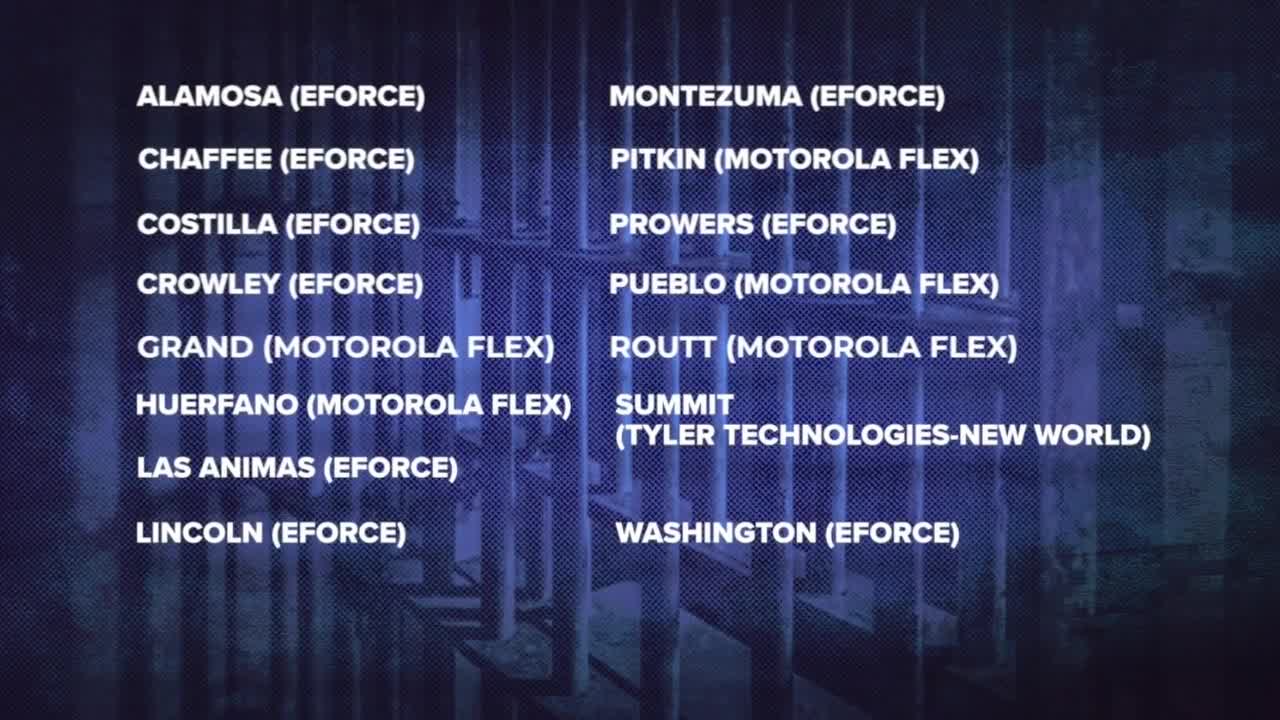DENVER — Jails across Colorado now have a new way to communicate critical information about inmates within seconds.
"Historically, they will fax each other if they have an awareness of information that another jail has that would be useful or helpful, but they would have to know who to contact, Alexis Harper, project manager for the Colorado Division of Criminal Justice, said." They would have to know this person's criminal history, that they had been previously incarcerated at another facility and and then they would have to reach out and wait right for that request to be responded to and faxed back."
Those outdated and time consuming data sharing methods were becoming public safety concerns, according to Harper.
"During that whole process, right? This person is in custody. You may not know very much about them. They could have a medical concern, a health concern, something behavioral health related, perhaps that, or even potentially some kind of conflict with another person that's incarcerated," Harper said.
That's why she calls the Colorado Trusted Interoperability Platform (CTIP) "reformative" and "innovative."
"Basically CTIP uses Application Programming Interface or APIs to connect jails management systems even when their technology differs," Harper said. "And so the API allows for the transfer of information between database management systems that are not have never been built to communicate, and we started the development of the pilot project about two years ago."
The system had four pilot jails, that are now fully active with the new system:
- Arapahoe (Central Square - Jail 5)
- Broomfield (Tyler Technologies - New World)
- Denver (ATIMS)
- Moffat (EFORCE)
The 15 additional jails listed below have applied for a grant and will be onboarded by June 2026, according to Harper:
- Alamosa (EFORCE)
- Chaffee (EFORCE)
- Costilla (EFORCE)
- Crowley (EFORCE)
- Grand (Motorola Flex)
- Huerfano (Motorola Flex)
- Las Animas (EFORCE)
- Lincoln (EFORCE)
- Montezuma (EFORCE)
- Pitkin (Motorola Flex)
- Prowers (EFORCE)
- Pueblo (Motorola Flex)
- Routt (Motorola Flex)
- Summit (Tyler Technologies-New World)
- Washington (EFORCE)
"So that's pretty exciting, the way the project has expanded. It will encompass about 40% of the state of Colorado's jail, incarcerated population," Harper said. " We've done it, you know, we, we have managed to to develop that capacity for them to send data in real time to one another. And also, we're moving forward with the capacity for them to submit their required statutory reports to the state. And so that is saving a ton of time and effort for jail staff, and it's really helping to promote much better data quality, consistency in that reporting."
She explained incarcerated populations often have higher medical and mental health needs. So it's important, she said, to make jail staff aware of any health history, behavioral concerns and prior incarceration quickly and before someone arrives to the jail.
"Not having to go back all the way to square one with various assessments and diagnosis processes, but that they would be able to say, 'Oh, we now have the history that's needed to reestablish care for this person.' And that continuity of care is really what's important for helping maintain stability," Harper said.
Right now, CTIP is only in Colorado. However, Harper said her team has been asked to speak at national conferences to bring awareness to the technology.
"Our project, in a very innovative way, is just really interested in and helping to promote, of course, public and community safety. I think that this approaches that in a very data driven and evidence-based way, which is really important," Harper said. "It could theoretically be made available now as a roadmap for other agencies to be able to use to develop something similar."





